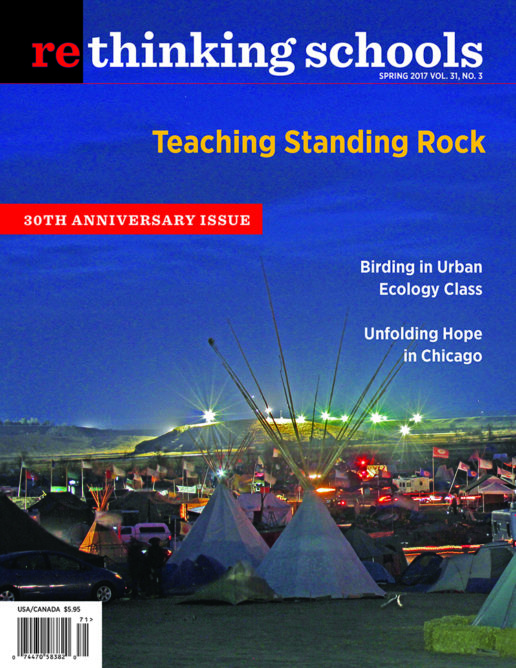Preview of Article:
How the edTPA Disrupts Relationships
Reclaiming our visions and integrity
Illustrator: Christiane Grauert
Mara: Caroline sits in my office weeping. She has failed the edTPA (a high-stakes assessment of teaching readiness) and can’t understand why. Her previous performance (both in class and in her practica) has been stellar; feedback from cooperating teachers and supervisors all speak to her enthusiasm, her creative lessons, and how well she engages a broad range of learners.
I ask her which lesson she submitted for edTPA analysis. Caroline had organized the students into heterogeneous cooperative learning groups, and each group was engaged in seeking information about aspects of the Civil Rights Movement. She thought the lesson was successful, and the students’ performance was what she had hoped for. But in writing up the lesson, she struggled to describe what she did in a way consistent with the edTPA framework, and her evaluations of group and individual work weren’t a good “fit” for the edTPA rubric.
I don’t know what to say. Caroline’s lesson flowed directly from our program’s focus on inclusion and diversity. I don’t want to warn students to structure lessons based on the edTPA rather than their best understanding of students and their learning. But I want Caroline to get her credential. Words stick in my throat.
This vignette highlights one of the many problems and disruptions created by the edTPA—among prospective teachers (PTs), teacher education faculty, and cooperating school personnel. In fact, the edTPA calls into question what we value about ourselves, our teaching, and our relationships.

